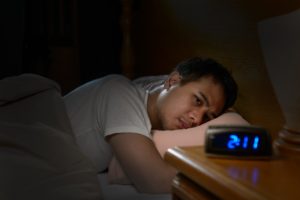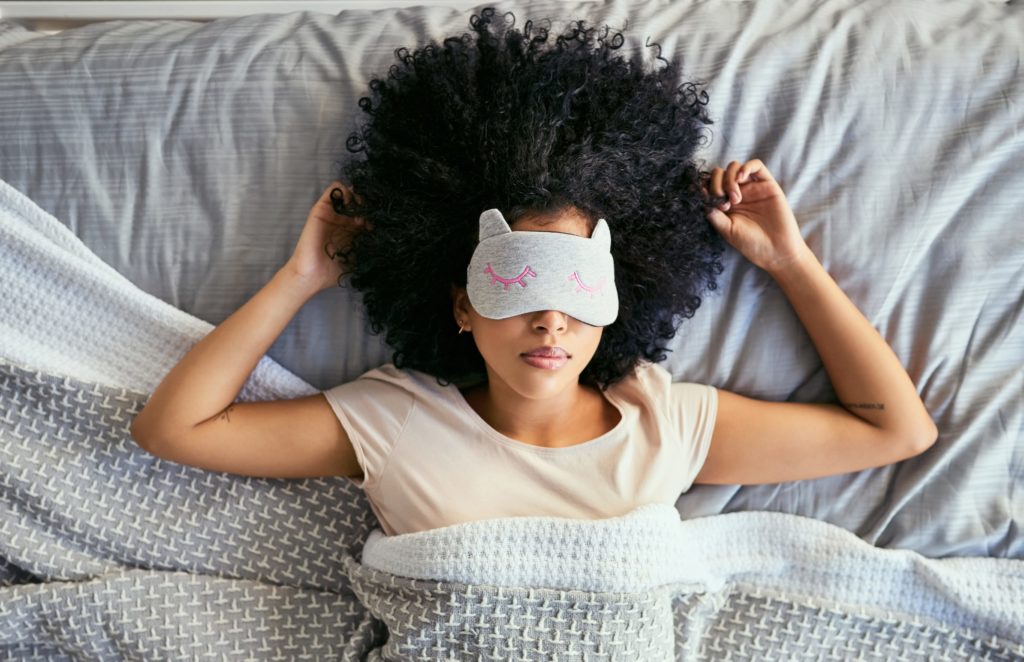Importance of a Good Night’s Rest
We’ve all been there, lying in bed, staring at the clock as it ticks closer and closer to our wake-up call…
By Katy Mena
We know that rest is critical to our health and success for the day ahead, but for some of us, we just can’t get enough sleep. In fact, as a result of my own personal chronic insomnia, I am writing this article at my kitchen table at 3:30 a.m. Go figure.
According to the Center for Disease Control (CDC), more than a third of Americans have problems falling and staying asleep. The reasons vary, stemming from hectic work schedules to sleep apnea to being technologically available 24/7. Americans today are suffering from insomnia and chronic fatigue more than ever before.
How Insomnia is Hurting Us

In a May 2013 article entitled “Insufficient Sleep is a Public Health Epidemic,” the CDC describes the increasing sleeplessness that faces many in our nation and how it is associated with an array of hazards that affects every area of life. The article describes how lack of rest can lead to the development of chronic disease such as hypertension, diabetes, depression, and obesity.
But the consequences are certainly not confined to illness. Sleep deprivation also affects an individual’s ability to contribute to their personal and professional life. Whether fighting to stay awake behind the wheel or engaged during an important meeting, a sleepless person simply is not living life as fully as they could. According to a recent article in U.S. News & World Report, adults who do not sleep enough are more likely to interact negatively with others and less likely to retain information.
“People just don’t realize how important sleep is and what the health consequences are of not getting a good night’s sleep on a regular basis,” says Carl Hunt, M.D., director of the National Center on Sleep Disorders Research at the National Institutes of Health, in a recent interview with WebMD. “Sleep is just as important for overall health as diet and exercise.”
How Much We Really Need
So how much sleep should you be getting every night? And is it possible to “make up” for lost sleep by sleeping in until noon on the weekends?
Unfortunately, the answer to the second question is no. A 2010 Harvard Magazine article entitled “Lost Sleep is Hard to Find” details the brain’s inability to wipe the slate clean and recharge completely. “The brain literally keeps track of how long we’ve been asleep and awake—for weeks,” says Harvard Medical School (HMS) neurology instructor Daniel A. Cohen, M.D.
As far as how much we need, the National Sleep Foundation says there is no “magic number” when it comes to the amount of rest that all human beings need on a nightly basis. Somewhere between 7 to 9 hours is generally a safe bet. But the specific amount necessary for each individual can be dependent on a variety of factors, including age, weight, and personal biology. For example, adolescents usually need a minimum of 9 hours of sleep each night, based on their circadian rhythms. In contrast, youths between the ages of 3 and 5 years old should clock 11 to 13 hours nightly, while 12-year-olds need about 10 to 11 hours each evening.
To properly care for their children, most parents sacrifice the recommended 7 to 9 hours they should sleep every night. Whether they are staying up late to care for their children or working all hours to earn family income, many adults skimp on their personal rest. And the same can be said for single adults who are under professional pressure or who simply cannot turn off the TV or computer in time to get the appropriate amount of rest.
As a consequence of this sleep deprivation, many adults tend to compensate for lack of rest with too much food, thus gaining weight and perpetuating a vicious cycle of obesity, sleep apnea, hypertension or even diabetes.
Sleep challenges continue as we age and require more rest to recover from daily activities or certain diseases. However, many people age 65 and older tend to divide their daily sleep between nighttime rest and a daytime nap, which illustrates just how varied the need of sleep is across different age groups.
Top Sleep Disturbances
Now the question becomes, how do we maximize our ability to achieve a routine of restful sleep? First, we must identify the primary factors that can be a barrier to all of us. According to Harvard Medical School, the main causes of sleep deprivation are:
- exposure to light in the late evening
- professional responsibilities that require late shift work or frequent travel across time zones
- medical conditions that cause pain or anxiety
- common chemicals such as alcohol, antihistamines, caffeine and nicotine
- a poor sleep environment (light, noise, temperature, etc.)
To make matters more complicated, not all sleep disorders are created equal. The U.S. National Library of Medicine has reported that there are more than 100 different sleeping and waking disorders, including:
- insomnia – difficulty falling asleep or staying asleep
- sleep apnea – difficulty breathing during sleep
- restless leg syndrome–an urge to move your legs, accompanied by tingly, creeping sensations
- narcolepsy–overwhelming daytime drowsiness and sudden attacks of sleep
Developing Good Sleep Hygiene

The good news is that there are steps we can take to gain better control of our sleep patterns. The Mayo Clinic has pinpointed a list of tips that are proven to help our bodies adapt! To get better rest, here’s what to do:
Set yourself a schedule.
Try to go to bed and get up at consistent times every day of the week—Saturdays and holidays included!
Make sure you’re comfortable with what you’ve had to eat in the hours leading up to bed, and don’t be hungry or full when you hit the sack. Also, avoid alcohol or nicotine for a few hours before bed.
Have a bedtime ritual.
Set yourself a routine that will signal to your brain that it’s almost time for bed. Take a bath, read a book, or wind down with relaxing music.
Make sure your bedroom is dark, cool, and quiet. Add white noise creators if necessary, such as a box fan or a sound machine. Additionally, have a comfy mattress and pillows that you can snuggle into.
Nap sparingly.
If you rest during the day, try to keep your naps between 10 and 30 minutes sometime during the mid-afternoon.
Exercise.
If physical activity is part of your lifestyle, you are likely to get better rest when it’s time to head for bed.
Set aside your stress.
It may be easier said than done, but as bedtime approaches, it is important to file your worries away for the next day. In your daily life, find ways to keep stress at bay by staying organized and prioritizing.
Many of us have heard these suggestions for getting better rest, but daily life and our adherence to our habits tend to make us ignore what is good for us when it comes to sleep. If this is you, keep in mind that there are consequences of not getting enough rest!
If you are having chronic problems getting enough rest, there are many resources that can offer help. For more information, visit www.sleepeducation.org. There are solutions! Learn what works for you and go get some rest. Your life is waiting!

